(NewsNation) — The U.S. Supreme Court heard arguments for the first time Wednesday on state bans of transgender medical care for young people in a case poised to impact transition health care across the nation.
Hundreds of protestors both in support of and against gender-affirming care for minors gathered outside the Supreme Court. Some had signs with “Fight like a mother for trans rights” and “Trans rights are not up for debate.” Others had ones that said “Champion God’s Design” and “Democrats Against Puberty Blockers.”
In United States v. Skrmetti, the high court’s considering whether a Tennessee law banning medical treatments such as puberty blockers and hormone replacement therapy for minors violates the Equal Protection clause, which requires that people in similar circumstances be treated the same under the law.
Families challenging the ban say their children are being denied critical medical care, while the state argues that it must protect minors from “serious risks” and outcomes.
Tennessee and at least 25 other Republican-controlled states have adopted laws restricting or banning gender-affirming care for young people. More than half of those bans are being challenged in courts, making the Skrmetti case highly consequential.
Oral Arguments
U.S. Solicitor General Elizabeth Prelogar, who is arguing against the ban, said during oral arguments Wednesday that “this case is about access to medications that have been safely prescribed for decades to treat many conditions, including gender dysphoria.”
“In Tennessee, these medications can’t be prescribed to allow a minor to identify with or live as a gender inconsistent with the minor’s sex. It doesn’t matter what parents decide is best for their children,” Prelogar said. “It doesn’t matter what patients would choose for themselves, and it doesn’t matter if doctors believe this treatment is essential for individual patients.”
Under Tennesee law, someone assigned female at birth can’t receive medication to live as a male. However, someone assigned male can, Prelogar pointed out.
“That’s a facial sex classification. Full stop. And a law like that can’t stand on bear rationality,” Prelogar said.
Justice Clarence Thomas asked why, since the ban is for minors, Prelogar isn’t arguing that it’s age classification.
“It certainly true, Justice Thomas, that the statute classifies based on age — but it packages that age classification with a sex restriction and says that for all adolescents you cannot take these medications if they’re inconsistent with your sex,” Prelogar said. “The court has likewise made clear that when you classify on the basis of multiple characteristics, you can’t avoid heightened scrutiny just because you have a non-protected characteristic that accompanies the protected one.”
Justice Samuel Alito said countries like Finland, Norway and Sweden have policies discouraging gender-affirming care for minors, to which Prelogar noted those countries don’t go as far as Tennessee’s outright ban.
“The evidence is very clear there are some children who actually need this treatment, isn’t there?” Justice Sonia Sotomayor said, adding that some children who suffer with gender dysphoria struggle with addiction issues and attempt suicide.
Prelogar said major medical organizations such as the American Medical Association and the American Academy of Pediatrics support gender-affirming care for trans youth.
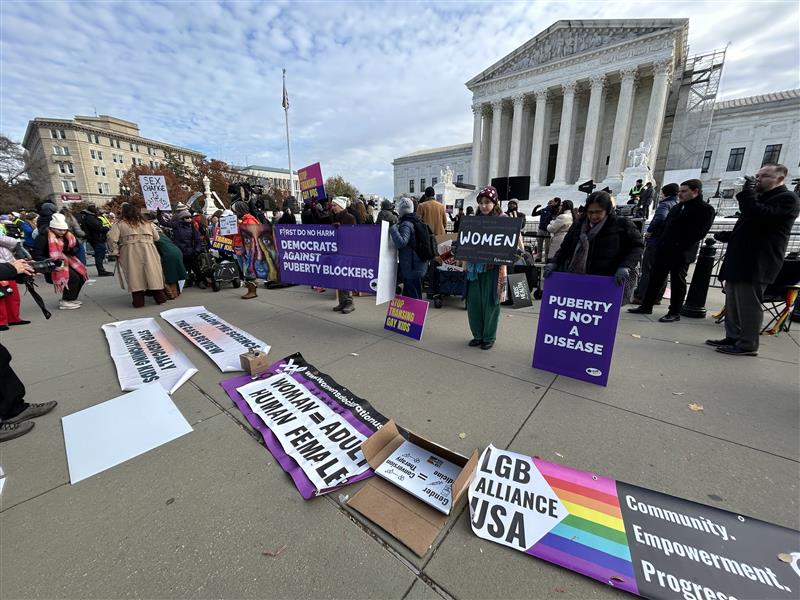
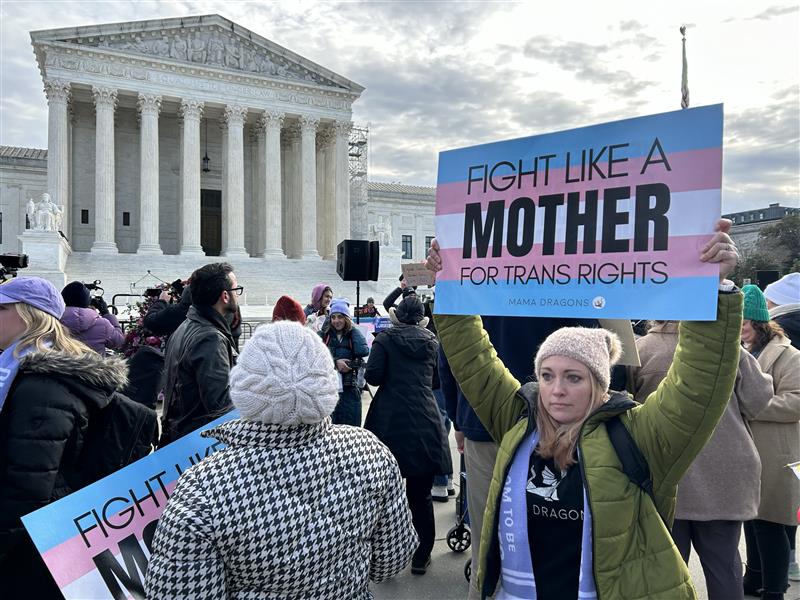
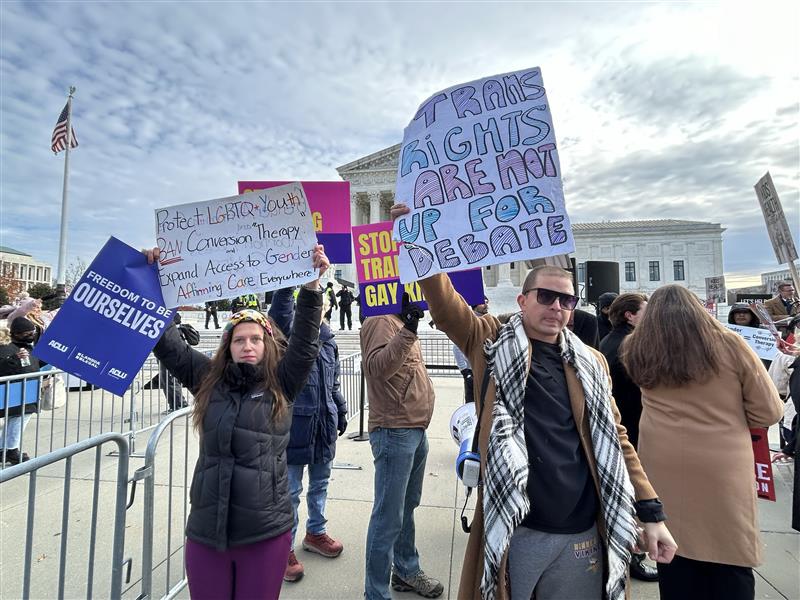
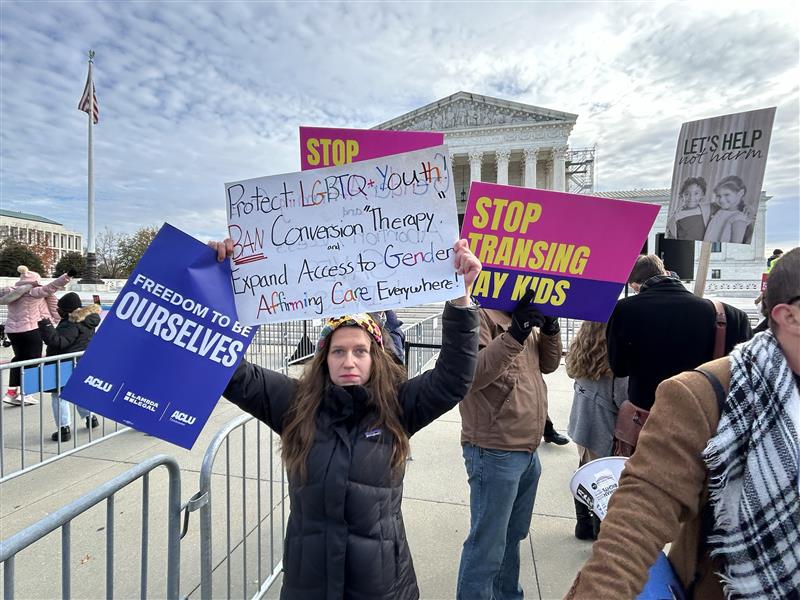
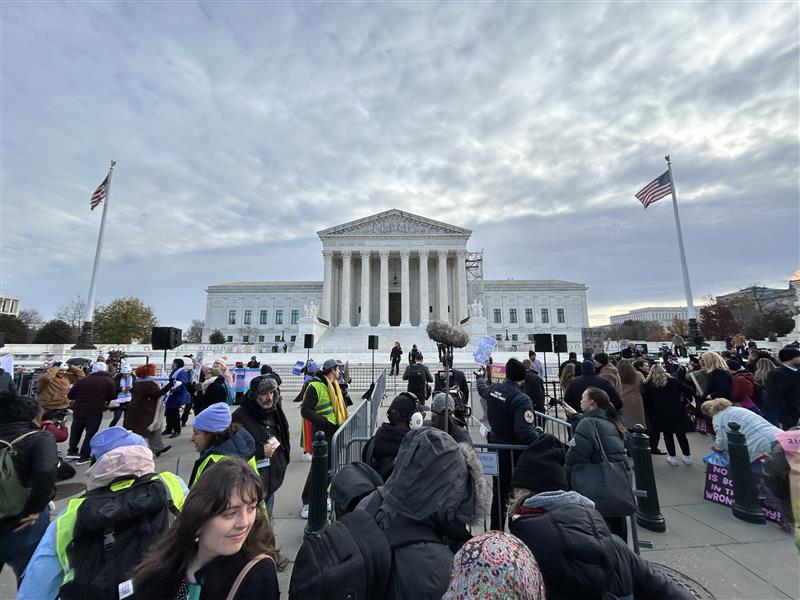
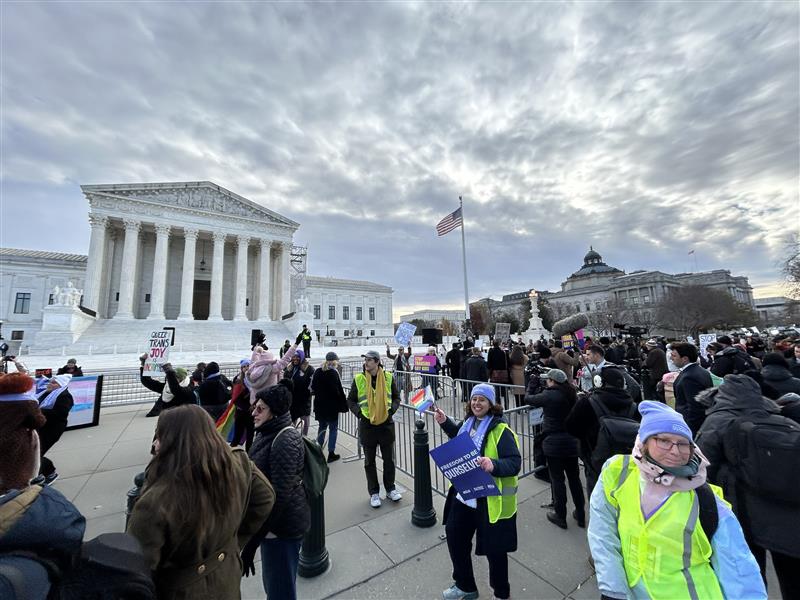
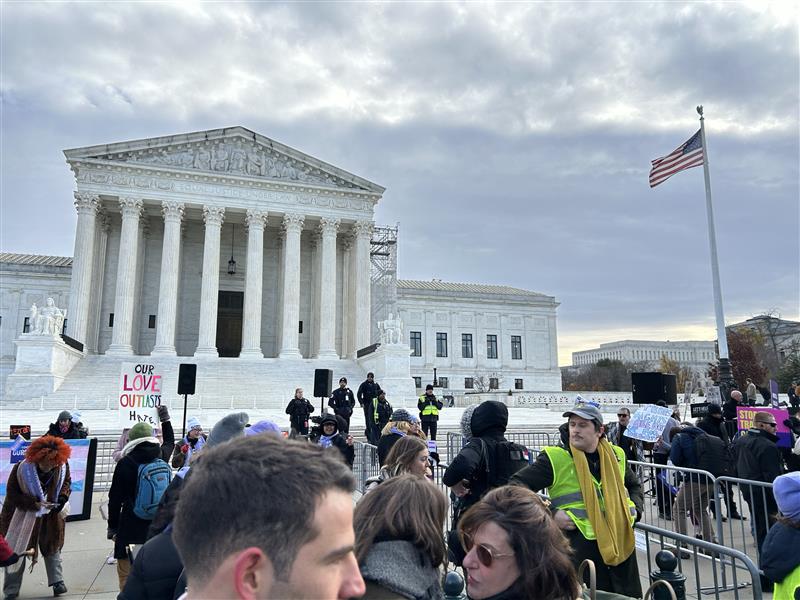
What is the case about?
This case centers around a 2023 Tennessee law called Senate Bill 1 that restricts certain medical treatments for transgender minors, including puberty blockers, hormone therapy, and sex-transition surgeries that would further “a purported identity inconsistent with the minor’s sex.”
Senate Bill 1 does carve out exceptions for these treatments being used for other medical conditions but not gender dysphoria or any psychological conditions.
After the law passed, Samantha and Brian Williams of Nashville, their 15-year-old transgender daughter, two other plaintiff families filing anonymously and Memphis-based medical doctor Dr. Susan Lacy filed suit challenging the constitutionality of the legislation.
The American Civil Liberties Union and Lambda Legal are representing them. President Joe Biden’s administration supports the challenge to Tennessee’s law, but the federal government’s position is expected to change after President-elect Donald Trump takes office in January.
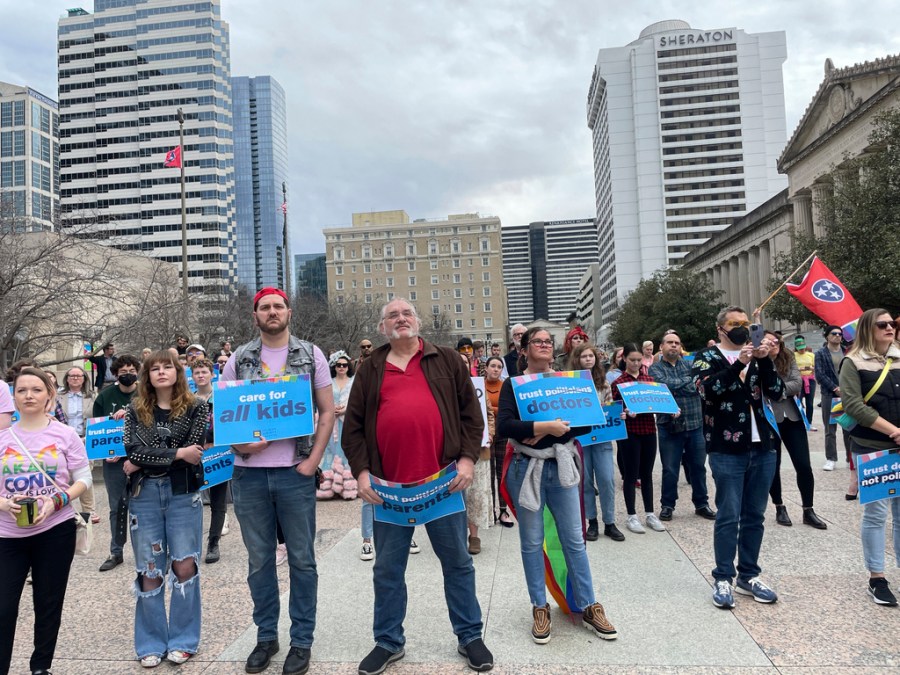
The group argued for a preliminary injunction to prevent the law from taking effect until it goes through the legal process. A lower court ruled in favor, finding that the laws likely infringed on parents’ fundamental rights to direct their children’s medical care and discriminated based on sex.
However, the Sixth Circuit Court of Appeals reversed the ruling and allowed the law to go into effect until the higher court decided its legality.
What do opponents of the ban say?
Those arguing against the ban say it discriminates on the basis of sex and transgender status, making it a violation of the Equal Protection Clause of the 14th Amendment of the U.S. Constitution.
The ban permits these same hormone medications when they are provided to an individual who is “consistent” with a person’s sex designated at birth but not to a transgender person, which is discrimination, the ACLU said. They argue that under the law, a doctor could prescribe estrogen to a “cisgender teenage girl for any clinical diagnosis but could not do the same for a transgender girl diagnosed with gender dysphoria.”
“We are simply asking the Supreme Court to recognize that when a law treats people differently based on their sex, the same equal protection principles apply regardless of whether the group impacted by the law happens to be transgender,” Chase Strangio, an attorney arguing for the plaintiffs, said. Strangio is the first openly transgender attorney to argue before the nation’s highest court.
The families say gender-affirming medical care is life-saving for their children.
“I am so afraid of what this law will mean for her. We don’t want to leave Tennessee, but this legislation would force us to either routinely leave our state to get our daughter the medical care she desperately needs or to uproot our entire lives and leave Tennessee altogether,” plaintiff Samantha Williams said in a statement.
What do supporters of the ban say?
Tennessee’s attorney general, Jonathan Skrmetti, argues that the state ban doesn’t discriminate based on sex but rather “draws a line between minors seeking drugs for gender transition and minors seeking drugs for other medical purposes” and that “boys and girls fall on both sides of that line.”
He also argues that the state has the right to protect young people from “irreversible, unproven medical procedures” that carry potential long-term risks.
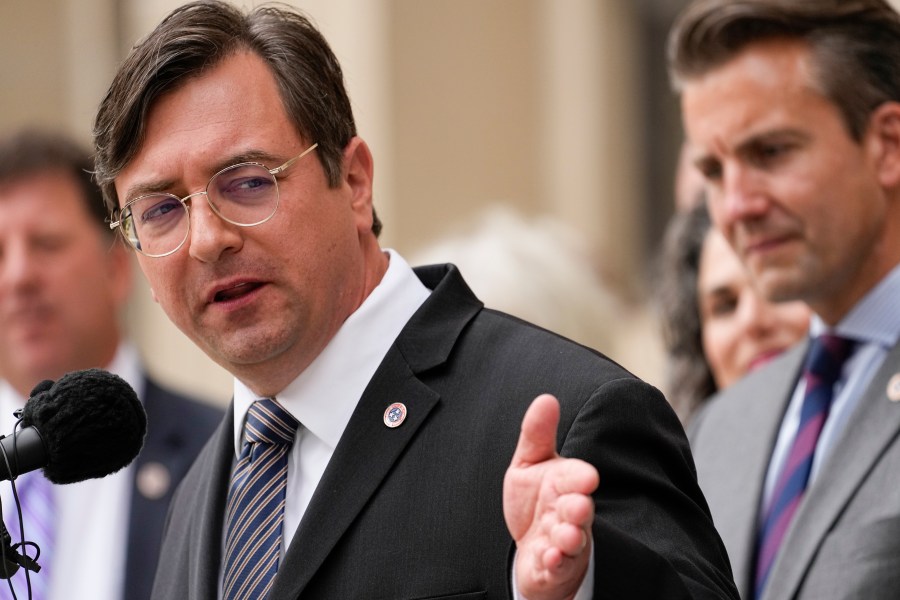
“Lawmakers recognized that there is little to no credible evidence to justify the serious risks these procedures present to youth and joined a growing number of European countries in restricting their use on minors with gender-identity issues,” Skrmetti said in advance of oral arguments, according to Tennessee Lookout.
Arguments made in court filings stated that European countries have started pulling back from gender-affirming medical care because of concerns about safety and effectiveness, the outlet reported.
Tennessee lawmakers considered European restrictions and listened to accounts “of regret and harm” from people who switched back to their original sex, the brief stated.
What are the potential implications of the case?
There are about 300,000 people between the ages of 13 and 17 who identify as transgender in the United States, according to the Williams Institute at the UCLA School of Law, a think tank that researches gender identity.
The case could chart the course for these thousands not only on existing bans but also on what states could do in the future.
“Upholding the law would leave room for Congress to ban gender-affirming care. We don’t know how broadly the court would define that. We don’t know what exceptions it would create, but it would leave room for them to legislate in this area in a way that would have impact on even those states that have taken a different approach” than Tennessee, Olatunde C.A. Johnson, a professor at Columbia Law School, told Roll Call.
Groups advocating against the ban say implications could spill over from minors into adult care.
“Certainly, how the Court comes out in this Skrmetti case will have some impact on laws that further restrict care for adults,” Cynthia Weaver, Human Rights Campaign senior director of litigation, told Time. “It may also encourage or discourage other states to contemplate further restrictions on adult care.”
NewsNation’s Tom Dempsey and The Associated Press contributed to this story.



